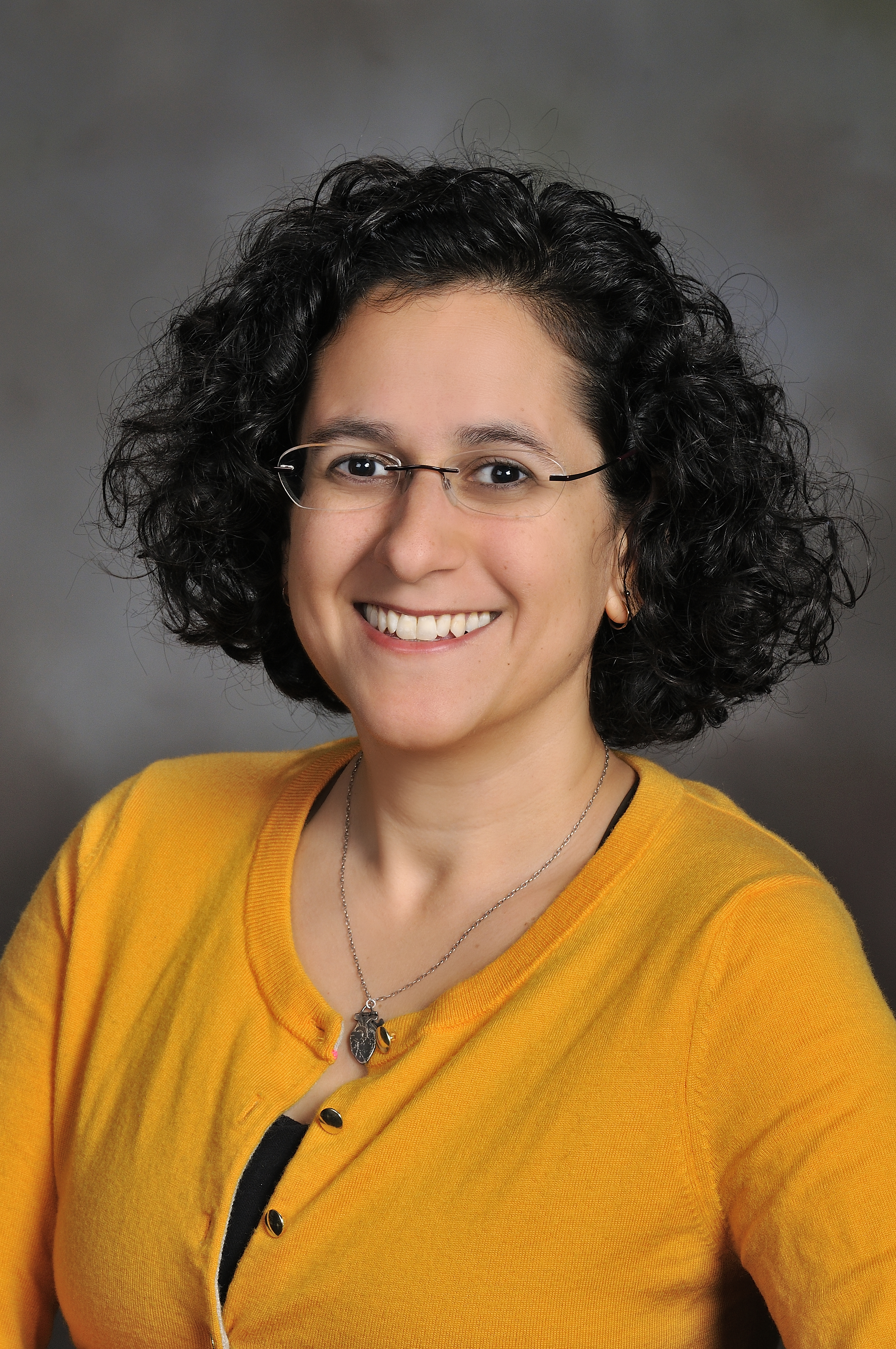Popular Science names College of Engineering's Nicole Abaid as one of 2014’s Brilliant 10

Popular Science magazine has named Nicole Abaid, an assistant professor with the Virginia Tech Department of Biomedical Engineering and Mechanics, as one of its 2014 Brilliant 10.
Abaid is featured in the October issue, now available online and at newsstands.
Abaid, who joined the Virginia Tech faculty in 2012, studies how animals – most prominently bats -- swarm in order to gain insights on improving the control of multi-agent systems, such as underwater robotic vehicle teams that rely on sonar.
“I am looking at collective behavior in groups that use active sensing -- sensing that relies on a self-generated signal, such as sonar or radar -- inspired by bat swarms,” said Abaid. “Inspired by these unique animal groups, we want to build a mathematical model of groups with active sensing that may have access to novel emergent behaviors not yet seen in systems with only passive sensing, such as vision. Then, we’re hoping to translate this model to the physical world through a team of robots with bat-inspired active sensors.”
Abaid regularly collaborates with Rolf Mueller, associate professor of mechanical engineering, and a world-celebrated expert on bat biosonar who also is interested in studying bat flight. Mueller’s work into the study of bats, including the changing shape of their ears and nose leaves to enable complex sensing, inspired Abaid’s own work.
“Bats in swarms are navigating by echo-locating with loud ultrasonic calls, which they all can potentially hear,” added Abaid. “So, when they are flying in a group, they could run into a lot of problems by getting confused about which echoes are from their sounds and which are from the sounds their peers make, which is called jamming.”
The ability of bats to fly in a swarm without the danger of collision is seen as key in building underwater vehicles and other robotics systems that can operate similarly. Abaid is working on an algorithm of this behavior using echolocation for sensing which is being validated against data collected from wild bats swarms at the Shandong University-Virginia Tech International Laboratory, located in China.
Following that, Abaid, Mueller, and their research teams will build a team of robotic ground vehicles that can mimic the ultrasound of a bat swarm and avoid not only collision, but jamming, by using bat-inspired behavioral and sensing strategies.
Popular Science calls Abaid and her fellow nominees “tomorrow’s Einsteins, Zuckerbergs, and Marie Curies,” adding, “remember their names: they are already changing the world as we know it.” The ten honorees are culled from hundreds of nominations vetted by experts in each scientific field, according to the monthly magazine, first published in 1872, after the same year Virginia Tech was founded.
“Popular Science has always looked optimistically towards the future, and there’s no more promising sign of what that future will bring than the inspired work of young scientists and engineers across the country,” said editor-in-chief Cliff Ransom. “The Brilliant Ten is a celebration of the best and brightest.”
Abaid earned a bachelor’s degree from University of North Carolina at Chapel Hill and a master's degree from University of Kansas, both in mathematics, and a doctoral degree in mechanical engineering from Polytechnic Institute of New York University.
Among her previous honors and awards, Abaid received Best Student Paper award at the 2011 American Society of Mechanical Engineers’ Dynamic Systems and Control Conference.
Abaid is the fourth Hokie to receive the Brilliant 10 designation from Popular Science during the past six years. David G. Schmale III, an associate professor of plant pathology, physiology, and weed science in the College of Agriculture and Life Sciences, was honored in 2013.
Also listed: two-time College of Engineering alumnus Maurizio Porfiri – now an associate professor at Polytechnic Institute of New York University and Abaid’s doctoral advisor– in 2010, and Dennis Hong, an associate professor with the Department of Mechanical Engineering at the time of his honor in 2009. Hong is now a professor at University of California Los Angeles and remains an affiliate professor with the Virginia Tech College of Engineering.




